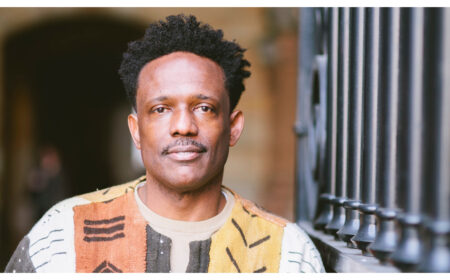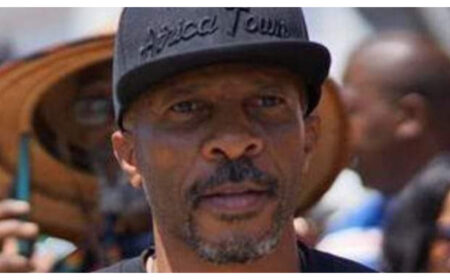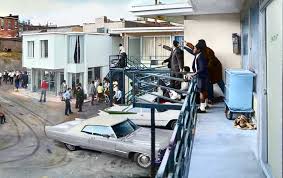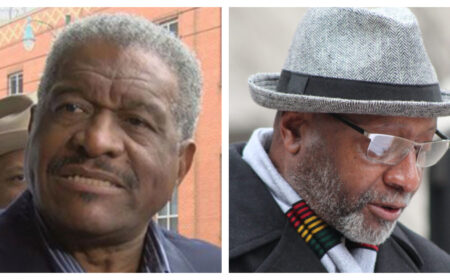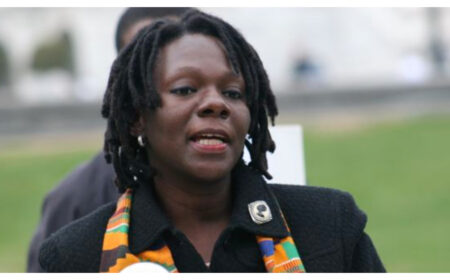Black August, George Jackson and Marcus Garvey
“Garvey was a race FIRST man, never a race ONLY person.”
by Norman (Otis) Richmond aka Jalali
Black August 2020 is here. Africa, Africans and our allies should commemorate this historical event which began in the dungeons of California in 1979.
Marcus Mosiah Garvey (1887-1940) appealed to the anti-capitalist and the pro-capitalist forces in the African world. While Garvey was respectful of Vladimir Ilyich Lenin (1870-1924) and other leaders of the 1917 Russian Revolution, he fought the U.S. Communist Party tooth and nail. Rupert Charles Lewis, the author of the book, Walter Rodney’s Intellectual and Political Thought, discusses this: Says Lewis “The Comintern out of Moscow had a resolution that the Garvey movement should be attacked and Communist Parties throughout the world including CPUSA and South African Communist Party were very hostile. They toned down their hostilities during Garvey’s imprisonment.”
Garvey supported a limited form of capitalism. However, I don’t think Bill Gates would be too fond of Garvey’s ideas. Garvey put a limit of how much profit an individual and a corporation could earn. He said an individual could earn two million dollars and a corporation only five. In 2020 this would be roughly ($60 million dollars). This would make the One Percenter bust out in laugher.
“Huey P. Newton (February 17, 1942 – August 22, 1989), who founded the Black Panther Party for Self Defense with Bobby Seale, counted Garvey among his heroes.”
Garvey’s position on race was more complex than has been presented. He was a race FIRST man, never a race ONLY person. David Brundage, Professor and Graduate Program Director, History Department, University of California, Santa Cruz reveals:
“Most surprising of all in light of the deep currents of anti-black racism that ran through the history of the Irish in America was the enthusiasm of Marcus Garvey and other African-American protest leaders for the Irish cause.”
It may come as a surprise to many that Huey P. Newton (February 17, 1942 – August 22, 1989), who founded the Black Panther Party for Self Defense with Bobby Seale, counted Garvey among his heroes. Also, the Field Marshal of the Black Panther Party, George Jackson (September 23, 1941 – August 21, 1971) was a student of Garvey, and at one point in his political development actually wanted to go fight in Africa. Newton and Jackson were among the anti-capitalist forces that admired Garvey.
Newton wrote about Garvey in his volume, To Die for the People. He wrote: “Marcus Garvey and Malcolm X were the two Black men of the 20th century who posed an implacable challenge to both the oppressor and the endorsed spokesmen.” Newton recognized and acknowledged that Garvey was a threat to the power structures in the USA and Western Europe. Jackson also shared Garvey’s hatred for Europe’s hand in the underdevelopment of Africa.
James Carr was one of Jackson’s allies in prison. Carr wrote in his autobiography Bad, about the political changes Jackson went through in prison:
“He (Jackson) had become convinced that there would never be any social change in this country, that everyone, Blacks included, had been too brainwashed. He believed that our only hope lay in going back to Africa to participate in the political struggles going on there. George had studied Pan-Africanism and thoroughly mastered African history while I was away. According to George, the new Black man was being formed in the struggles for national liberation going on in the Portuguese colonies of Angola, Guinea and Mozambique.”
“George Jackson also shared Garvey’s hatred for Europe’s hand in the underdevelopment of Africa.”
This was where the highest principles of justice and equality were being put into practice: “To promote his ideas, George had started giving political education classes to the Pack (a group of Black convicts joined together for survival inside Soledad prison); each dude had to read a certain amount of material by Garvey and other nationalists and different things from Pan-African magazines George had collected… Africa was on our minds, but we had plenty to worry about right where we were, too.”
Ironically, it was the African liberation movements in the Portuguese colonies plus Rhodesia (Zimbabwe) South West Africa (Namibia) and South Africa that helped turn many Africans in the West to anti-capitalist politics. Amilcar Cabral, the central leader of the struggle in Guinea-Bissau, told Africans in the West that the best thing they could do for Africans struggling against colonialism was fight their governments where they lived.
Jackson was one of many who decided to fight for Africa where they were. Walter Rodney was moved by Jackson’s politics. Rupert Charles Lewis’ book, Walter Rodney’s Intellectual and Political Thought, mentions how Rodney respected Jackson:
“Many of the lectures he gave in the US in the 1970s were concerned with the relevance of Marxism to Africa and the Third World. In his essay on George Jackson, written in Dar es Salaam, he demonstrated the merits of his approach which grasped both class and race dynamics of the Black experience in the US.”
African communities around the globe should find creative ways to commemorate all the historical events that take place in August. Emancipation Day, August 1 is an important day in the history of millions of Africa’s children. This is an important moment for those who fought against the Empire in Britain. The sun has forever set on the British Empire and U.S. Empire is declining every day. August 17 is the birthday of Garvey and it should be remembered. Also, August 7 and August 21 are important in the revolutionary calendar of African people. George Jackson’s younger brother, 17-year-old Jonathan, was killed by police gunfire on August 7, 1970 as he attempted to free James McClain, William Christmas and Ruchell Cinque Magee from a courthouse in Marin County, California. Magee was the only survivor of the Marin County slave rebellion, and is the longest serving political prisoner in the USA.
“Amilcar Cabral told Africans in the West that the best thing they could do for Africans struggling against colonialism was fight their governments where they lived.“
As we reflect on the lives of Garvey, Rodney, George and Jonathan Jackson we must also remember Magee. He can be contacted: Ruchell Magee, A-902051, CMC P.O. Box 8103, San Luis Obispo, and CA 93409. We cannot allow Ruchcell Magee to die in prison. Every effort should be made to free Magee and all political prisoners inside the United States.
In an unpublished commentary on an earlier version of this article, Richard Sutherland writes:
“Any discussion of Garvey must do so dialectically, in motion, looking at the strengths and weaknesses of Garvey and showing how subsequent generations promoted the strengths yet transcended the weaknesses.
“In the first paragraph, you pointed out the contradiction in Garvey but showed the two possibilities emanating from this contradiction (pro- or anti- capitalist) and (correctly) focused your attention on the revolutionary legacy that flowed from GARVEY. Objectively, this is the correct way of dealing with Garvey, especially if we call ourselves progressive which implies FORWARD MOVEMENT!
“As you point out, Huey and George represented the revolutionary aspects of what Garvey wasn’t, yet manifested the spiritual and emotional relevance of what Garvey was.
“Again, it was Garvey’s emphasis on Africa that stimulated future generation of revolutionary Africans to “look to Africa” for inspiration. And we did! As you’ve shown, Huey and George were inspired by revolutionaries in Africa who looked like GARVEY in the form of Amilcar Cabral and others. They adopted their Garveyism to Marxism and their Marxism to Garveyism, analysing their concrete conditions. Huey and George saw how revolutionary Africans on the Continent were struggling to realize one of Garvey’s dreams of a free and liberated Africa for Africans and incorporated some of the new and progressives ideas that were lacking in Garvey. Again, Garvey transcended. This is the dialectical negation!
“Dialectically, we start with Garvey and end with his revolutionary progeny! You did! You started with Garvey and ended with BLACK AUGUST! This is necessary to properly understand Garvey and his contribution to the further development of the PROGRESSIVE struggle of oppressed Africans and other oppressed people.”
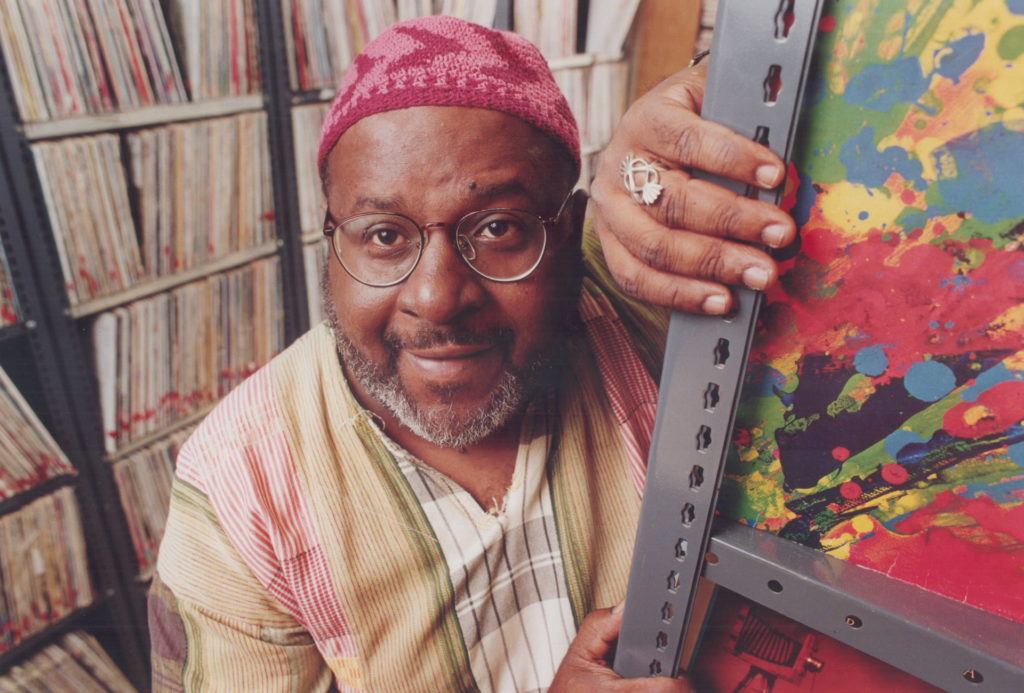
For more informantion [email protected]
